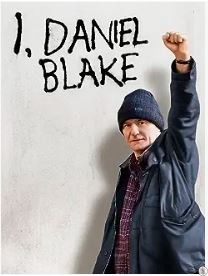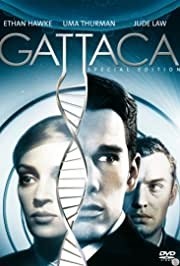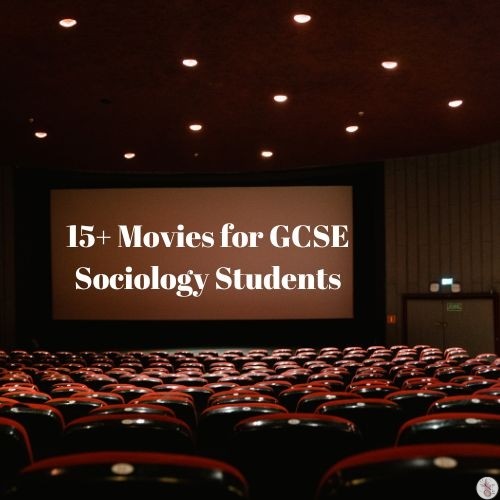When it comes to studying, nothing comes close to time spent on your study material, whatever your learning style. Sometimes, however, it’s good to see things from different perspectives – especially topics you don’t and can’t have first hand experience on. We found our Friday morning movies were a great way to see topics from different perspectives, and made a fantastic conversation starter for discussions around the topics Ameli was studying that particular week. So here are some watched – and some recommended – movies for GCSE Sociology courses.
*** I should add a caveat here that Ameli is only 13, and some of these movies have older age restrictions. GCSEs are aimed at 14-16 year olds, so it’s up to you and at your discretion what you’ll let a child watch. I do think if she’s old enough to study it and achieve an 8 (that’s somewhere between an A and an A+ in old money!) then she’s probably old enough to deal with the topics in the movies – though for some we did skip a scene or three.
We did the AQA GCSE 9 -1. The topics of other exam boards may be somewhat different.
Family & Community
All available on Amazon Prime (at time of publishing). This affiliate link offers a 30-day free trial.
- A Bugs Life (1998) (U)
A good introduction to Marxism.
- Dead Poet’s Society (1989) (PG)
This film isn’t about family, actually, but about community, society, belonging. It’s a good conversation piece film. And it makes me cry.
- The Hundred-Foot Journey (2014) (PG)
The Hundred-Foot Journey is only barely linked to the subject, but it does look at relationships and expectations within families, but more so within the context of cultures. A family leaves their home in India for France and cultures collide, but ultimately a community is formed. It’s a beautiful film – truly.
- The Truman Show (1998) (PG)
Truman Burbank has a seemingly idyllic lifestyle: a secure job, a loving family and a peaceful home. Yet, unbeknownst to him, his entire existence has been one long TV series, the people around him Hollywood actors, the town a massive studio set, and the whole show orchestrated by a visionary director. The film deals with issues of media, socialization, ethics, power.
- My girl (1991) (PG)
A coming of age story, that explores single parent (dad) family dynamics, friendship and loss. Only tangibly relevant in that it shows life from a different perspective, both in the innocence of the early 90’s and in the father-figure single parent home. My kids did actually mention the freedom the characters had in roaming around – as most of us did when we were kids.
- Lady Bird (2017) (15)
A coming of age film set in the mid-2000s, following the senior year of a student as she resists the conformity of her Catholic high school. Themes: deviance, identity, social class.
There’s also a good list of documentaries here that support the family topic.
Education
- Film: The Freedom Writer (2007) (12)
Available on Amazon Prime (at time of publishing). This affiliate link offers a 30-day free trial.
Based on a true story a teacher encourages her marginalised, mostly ethnic minority and economically disadvantaged students to make something of their lives through diaries, and through added-value educational experiences. A decent look at race, economic circumstances, privilege and poverty and the hope and opportunities that comes with education, thus it also applies to the social stratification aspect. Definitely an example of self-fulfilling prophecies.
- Film: School Ties (1992) (PG)
Available on Amazon Prime (at time of publishing). This affiliate link offers a 30-day free trial.
This has an all-star cast dealing with bigotry during the 1950’s. Even though it deals with anti-Semitism, the story truly applies to all types of discrimination students might face in schools.
There’s also a good list of documentaries here that support the education topic.
Crime and Deviance
- Film: Minority Report (2002) (12)
Available on Amazon Prime (at time of publishing). This affiliate link offers a 30-day free trial.
Again, this is pure fiction, ‘just a movie’, but it raises interesting discussion. In a future where a special police unit is able to arrest murderers before they commit their crimes, an officer from that unit is himself accused of a future murder. There are ‘precogs’ (humans with the gift of foresight) who are ‘imprisoned’ in order to make this happen. It’s a typical Tom Cruise film, but pretty good discussion points.
- Film: The Green Mile (1999) (18+) **
Available on Amazon Prime (at time of publishing). This affiliate link offers a 30-day free trial.
Death Row guards at a penitentiary, in the 1930’s, have a moral dilemma with their jobs, when they discover one of their prisoners, a convicted murderer, has healing powers. There’s a lot of racial discrimination, but also mental health discrimination, nepotism and privilege.
** If you skip a few sections of this film, i.e. the rather brutal execution scene, the rest of the film is alright, though it does deal with some very adult themes. If your 13 year old is writing you might want to watch it again before with that in mind. If it’s your 15 year old… that’s up to you.
- A Time to Kill (1996) (15)
Available on Amazon Prime (at time of publishing). This affiliate link offers a 30-day free trial.
** This film is about the gang rape of a young child. I skipped the movie at the point where the males stop their car and picked it up again when the little girl is delivered back to her parents. There is no reason for a young person to see it and even as an adult it haunts me. The rest of the film is brilliant. In the final closing argument in court much of assault is described in detail, but without the picture in their heads, it isn’t as graphic as it would be if you’d watched that part of the film.
It challenges our own racial stereotypes – even if you think you’re not a racist! It challenges our perceptions. It’s one of the few times I think the movie is better than the book, but it definitely raises talking points around race in the legal system – and dozens of other points too, such as morality and justification. It is definitely a tough watch, but I can’t think of a better film for race and the legal system.
Here are more films recommendations that delve into social stratification, though we didn’t get round to watching them:
- Lord of the Flies (1990) (15)
Available on Amazon Prime (at time of publishing). This affiliate link offers a 30-day free trial.
Young military cadets are marooned on an island and must take up adult responsibilities. With no supervision, they create a new society — but two chiefs emerge with vastly different leadership styles. Ralph organizes shelter and fire for his followers, while Jack would rather have fun and hunt with his entourage of adventure-seekers. In the end, they face off in a battle of primal urges and civilized behaviour. A good film for looking at social control & social bonding theories.
- City of God (2004) (18)
**Discretion advised
A crime film about poverty, violence, inequality, and social class in Brazil.
Closer to home, here are a few documentaries on Crime and Deviance.
Social Stratification
- Film: I, Daniel Blake

Available on Amazon Prime (at time of publishing). This affiliate link offers a 30-day free trial.
Social class, underclass, inequality, poverty, work
I, Daniel Blake is a powerful and emotional film that takes a harsh look at the reality of life on benefits, the struggle with bureaucracy and red tape, and what happens in a ‘tick-box’ society (where we’re all meant to be one-size-fits-all.) It looks at the difficulties of unemployment in the North East of England (but could be anywhere now) from the point of view of an older unemployed male and a young single mother of two. This film is demonstrates visually an explanation of the cycle of deprivation and why living in poverty can be a fatalistic and hopeless existence. It also brings to life the struggles of an aging population from a pre-digital age left behind in an entirely digital world.
- Film: Gattaca
Available on Amazon Prime (at time of publishing). This affiliate link offers a 30-day free trial.
Gattaca is a purely fictional film and som e might argue not at all relevant to sociology, but I do think it’s a wonderful film for sparking a discussion and debate on social stratification – perhaps even on crime and deviance – because the main characters commit a crime in the eyes of their government and society, but is what they did wrong?
e might argue not at all relevant to sociology, but I do think it’s a wonderful film for sparking a discussion and debate on social stratification – perhaps even on crime and deviance – because the main characters commit a crime in the eyes of their government and society, but is what they did wrong?
It’s a film that confronts privilege based purely on birth. In Gattaca, society analyses your DNA and determines where you belong in life. This is the story of two men who break the rules to achieve the impossible.
Here are more films recommendations that delve into social stratification, though we didn’t get round to watching them:
- The Loneliness of the Long Distance Runner (1962) (12)
A rebellious youth, sentenced to a boy’s reformatory for robbing a bakery, rises through the ranks of the institution through his prowess as a long distance runner. During his solitary runs, reveries of his life and times before his incarceration lead him to re-evaluate his privileged status as the Governor’s prize runner. - Look Back in Anger (1959) (PG)
In Northern England, frustrated college dropout Jimmy Porter plays music at a jazz club at night and by day works at a candy stall with partner Cliff Lewis, who lives with Jimmy and his wife, Alison. Embittered by the strictures of working-class life, Jimmy constantly insults Alison, whose family is upper class. - Martin Eden (2019 subtitle film) (15)
Martin is a self-taught proletarian with artistic aspirations who hopes that his dreams of becoming a writer will help him rise above his station and marry a wealthy young university student. His dissatisfactions of working-class toil and bourgeois success lead to political awakening. Touches on marriage, politics, crime and stratification, so a good all-rounder if you can manage the subtitles.
Finally, some documentaries about social differentiation and stratification
